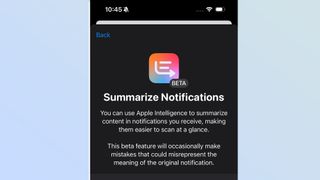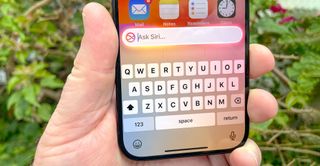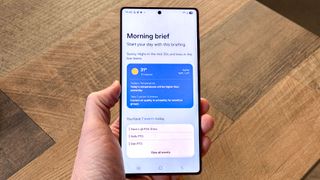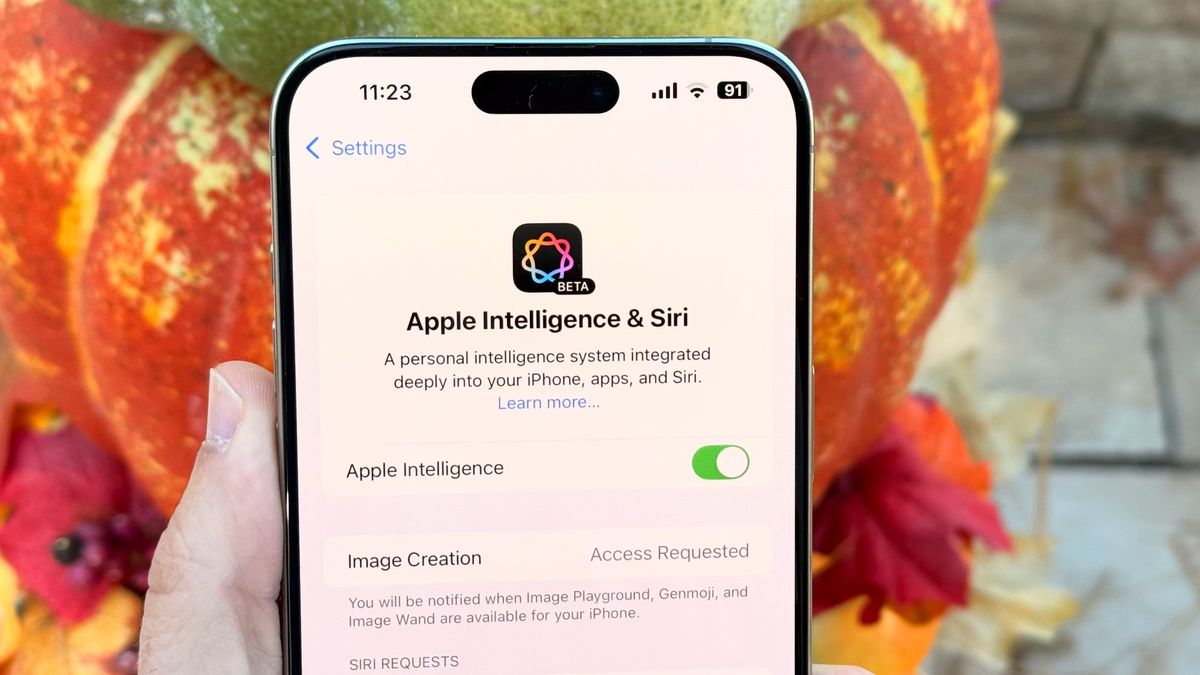in the greater scheme of things, iOS 18.3 will go down as a relatively uneventful update, mostly introducing fixes and refinements to existing features as opposed to rolling out new capabilities to your iPhone. But if you're following the introduction of Apple Intelligence, iOS 18.3 took a pretty big step forward in the evolution of Apple's suite of AI-powered tools
When Apple Intelligence debuted with the iOS 18.1 update back in October, owners of supported iPhones needed to opt in to the new set of features by heading into settings and toggling on a switch. That's not the case anymore — starting with iOs 18.3, Apple Intelligence features will be turned on by default.
On the surface, one might look at this development as Apple dusting off its hands and declaring "Mission Accomplished." It is anything but — even after iOS 18.3, Apple Intelligence remains a work in progress. While some of the AI features have integrated themselves quite nicely into the iPhone experience, others need more polish, and some promised improvements have yet to launch — something Apple itself would readily acknowledge.
Why Apple Intelligence isn't fully ready just yet

While iOS 18.3 enabling Apple Intelligence by default grabs everyone's attention, there are other signs within the software update that indicate a lot of work is ahead of Apple on the AI front. For starters, you can still turn off Apple Intelligence from the Apple Intelligence & Siri section of the Settings app, so opting in isn't mandatory.
For another thing, a lot of the fixes in iOS 18.3 I mentioned at the start of this article have to do with fine-tuning Apple Intelligence. One of the more noteworthy aspects of the update involves notifications for news and entertainment apps. Apple has temporarily turned these off because many of the AI-powered summaries proved to be wildly inaccurate.
That's not ideal for the makers of news apps watching their articles mischaracterized by Apple's AI nor does it generate a lot of confidence in the other summary tools included in Apple Intelligence. Apple's wisely taking that feature back to the drawing board, but it's an indicator of how some artificial intelligence needs better training before it's ready to go out into the wild.
On a more positive note, iOS 18.3 also contains updates to existing AI features that make them better. Other AI-generated summaries that appear on your lock screen — like for text messages, just as an example — will now appear in italicized text, making them easier to spot at a glance. If you've got an iPhone 16 model, the Visual Intelligence feature can now add events to the Calendar app when you point your camera at a flyer or poster; the feature also can identify plants and animals.
These are positive improvements, not unlike the addition of the Describe Your Change feature to Writing Tools in last year's iOS 18.2 update. Describe Your Change provides a lot better control over the way in which Apple's AI feature tweaks your text, adding some muscle to what had been some pretty flaccid writing tools.
That's the positive aspect of treating Apple Intelligence as an ongoing rollout. Apple may introduce new AI features, but it's not done with them once they land on your phone. There's a willingness to go back and fix what's not working or expand on what is.
Siri changes still pending

The biggest missing piece in the Apple Intelligence rollout remains Siri. Apple's personal assistant has seen some improvements in the initial updates to iOS 18. but the most anticipated improvement is still to come.
Specifically, conversations with Siri have become a little more natural since Apple Intelligence launched with the digital assistant able to field follow-up questions while understanding the context of what you're asking about. Sometimes, that's with mixed levels of success, but you can see where Apple is making improvements.
There are other changes to Siri, like a new animation that flashes across the entire iPhone screen to indicate the assistant is all ears, and there's a Type to Siri feature as well. You can also interrupt the assistant when it's rattling back an answer to you if you want to ask follow-up questions, and Siri isn't flummoxed when you correct yourself mid-request.
Certainly, these are welcome improvements, but Apple has promised more. To that end, Siri is supposed to pick up on-screen awareness, so that it can make suggestions and provide answers based on what's displayed on your iPhone screen. Siri is also supposed to learn your personal context, so that its recommendations are better tailored to you. And finally, Siri should be able to interact with other apps on your phone as well.
The good news is these changes are rumored to be arriving in the iOS 18.4 update later this spring, which means those of us with the public beta of iOS 18 installed should soon be able to try them out. But on the downside, the absence of these features has been keenly felt ever since the Galaxy S25 launch delivered new Galaxy AI capabilities that have beaten Apple to the punch.

For instance, you can tap into the Gemini assistant on a Galaxy S25 and perform cross-app actions with any app from Google or Samsung, plus Whatsapp and Spotify. Thanks to that improvement, you can even give a command that interacts with multiple apps at once, looking up information online and adding it to a note as an example.
Additionally, the new One UI 7 software running on the Galaxy S25 features a Now Brief screen that's eventually going to be populated with personalized information and contextually appropriate data like upcoming appointments, traffic conditions for your daily commute and other information based on your past activities and preferences. In early testing, the Now Brief screen looks pretty bare bones, but it figures to get smarter over time as it learns more about you.
It doesn't necessarily matter that Samsung got to these features ahead of Apple. But it very much raises the bar that Apple has to implement them better than Samsung has. And we're still waiting to see how that will pan out.
Apple Intelligence outlook
Clearly, Apple Intelligence has generated some interest among Apple users. When reporting Apple's first quarter earnings last week, CEO Tim Cook noted that iPhone sales were better in regions where the AI features are already available compared to where Apple Intelligence has yet to get support. With addition language support for Apple Intelligence coming in April, there figures to be a lot more users ready to see what all the AI fuss is about.
That's another reason why work on Apple Intelligence is far from over, even if the AI tools are now enabled by default with Apple's latest iPhone software. There's some big features yet to come and new markets left to conquer.
More from Tom's Guide
- Apple's likely to release lots of iPhones this year — which one should you plan to get?
- I review PCs for a living, and Apple Intelligence is already better than Windows Copilot
- Samsung execs on Galaxy S25 Galaxy AI: it will make you ‘twice as happy’




















 English (US) ·
English (US) ·